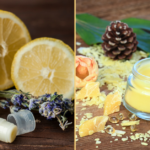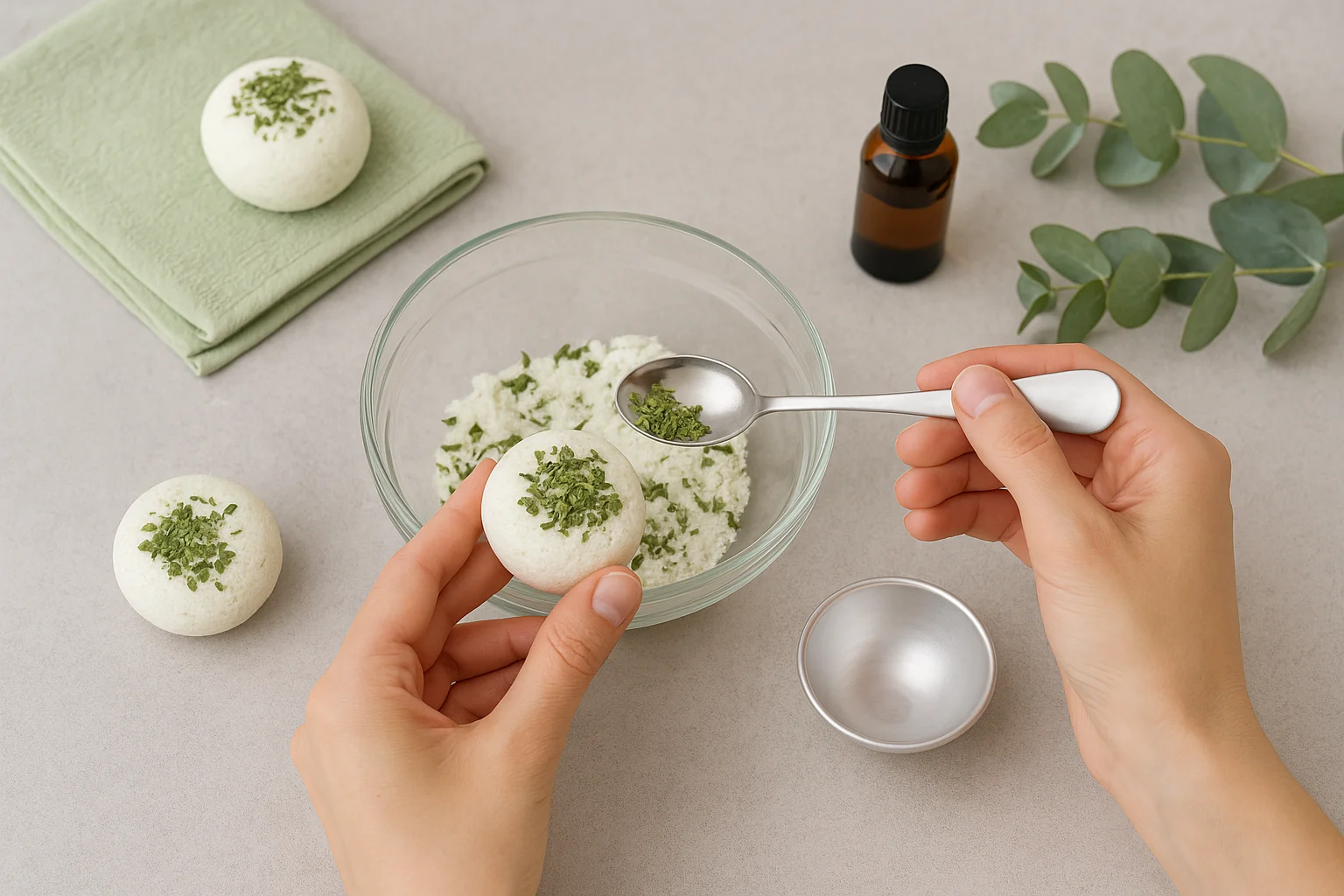
Skin conditions like acne, eczema, burns, and rashes can be frustrating to treat, especially when they persist despite commercial remedies. However, nature provides powerful solutions in the form of healing herbs. Aloe Vera, Calendula, and other botanical treasures have been used for centuries to treat various skin ailments. These herbal remedies offer a natural, effective alternative to chemical-based treatments, nourishing and restoring the skin’s natural health.
In this guide, we’ll dive into the benefits of some of the most potent healing herbs for skin conditions, exploring their properties, how they work, and how you can incorporate them into your skincare routine. Whether you’re dealing with chronic acne, sensitive skin, or sunburns, the right herbs can help you achieve radiant, healthy skin naturally. Let’s explore the best herbs, how they can heal common skin conditions, and why they’re a must-have in any natural skincare regimen.
By the end of this article, you’ll not only discover the healing power of herbs like Aloe Vera, Calendula, and Chamomile but also understand why herbal remedies can be a safer, more sustainable option than synthetic products.
Aloe Vera: The Soothing Skin Savior
Aloe Vera is perhaps the most well-known herb for treating skin conditions, and for good reason. This succulent plant is packed with vitamins, minerals, and antioxidants that make it a versatile treatment for a variety of skin ailments.
Healing Properties of Aloe Vera
- Anti-inflammatory and Cooling Effects: Aloe Vera is most famous for its ability to soothe sunburns. The gel from its leaves cools the skin, reducing redness and inflammation caused by UV exposure.
- Hydration and Moisture Retention: Aloe Vera is composed of 99% water, making it an excellent moisturizer for dry skin. It hydrates without clogging pores, which makes it perfect for acne-prone skin.
- Antibacterial and Antifungal: Aloe Vera’s natural antiseptic properties make it effective in treating minor cuts, scrapes, and acne. Its antibacterial compounds, like polysaccharides, help reduce infection, allowing the skin to heal faster.
Treating Acne with Aloe Vera
Aloe Vera works wonders on acne because of its antibacterial properties. Applying the gel can reduce inflammation, decrease redness, and speed up the healing of blemishes. The natural astringent effect helps in removing excess oil, keeping your skin clear and preventing future breakouts.
To get the best out of Aloe Vera for acne:
- Apply fresh Aloe Vera gel directly to affected areas.
- Leave it on for 15-20 minutes before rinsing with lukewarm water.
- For best results, use it twice daily.
Aloe Vera for Burns and Wounds
Aloe Vera is also an excellent remedy for burns. Studies show that it can accelerate the healing of first- and second-degree burns by stimulating collagen production and improving circulation to the damaged area. This makes it a go-to solution for sunburns, kitchen burns, and minor wounds.
Looking for more insights on plant-based ingredients for your skincare routine? Check out this article for a deeper dive into natural skincare.
Calendula: The Anti-Inflammatory Powerhouse
Calendula, also known as marigold, is renowned for its bright flowers and incredible skin-healing properties. It’s packed with flavonoids, antioxidants that help protect the skin from oxidative stress and promote faster healing.
Why Calendula is Great for Sensitive Skin
Calendula’s anti-inflammatory properties make it ideal for those with sensitive skin or conditions like eczema. Its gentle yet potent effects soothe itching, reduce redness, and promote skin repair. It can even be used to calm diaper rash in babies, showcasing its versatility.
Calendula for Eczema and Dermatitis
People with eczema and dermatitis often experience dry, cracked, and inflamed skin. Calendula provides relief by:
- Moisturizing the skin deeply, improving hydration.
- Reducing inflammation and the itching associated with these conditions.
- Healing damaged skin tissue and speeding up recovery.
To treat eczema, you can use calendula oil or cream directly on the affected areas. Using it regularly can provide long-term relief from flare-ups.
How Calendula Fights Skin Infections
Calendula’s antifungal and antibacterial properties help protect the skin from infections. For minor wounds, scrapes, or bug bites, calendula promotes faster healing by reducing the risk of infection. Its rich concentration of linoleic acid helps regenerate skin tissue, making it ideal for scar healing as well.
If you struggle with sensitive skin, explore this guide to natural skincare remedies tailored to your needs.
Chamomile: Calming Irritation and Reducing Redness
Chamomile is another herb that has been used for centuries in skincare. It’s known for its calming and anti-inflammatory properties, which are particularly useful for treating skin conditions like rosacea, eczema, and psoriasis.
Chamomile for Rosacea
Rosacea sufferers often experience flushing, irritation, and visible blood vessels on their face. Chamomile can help manage these symptoms:
- Anti-inflammatory Properties: Chamomile soothes the skin and reduces the appearance of redness and visible blood vessels.
- Antioxidants: Rich in apigenin, chamomile fights free radicals that can exacerbate rosacea symptoms.
Applying chamomile-infused creams or facial sprays can calm inflamed skin and prevent future flare-ups.
Chamomile for Acne and Psoriasis
Chamomile’s antibacterial properties also make it effective for acne-prone skin. It helps reduce redness and irritation caused by acne, while its antiseptic nature clears bacteria from the skin. For psoriasis, chamomile can help soften plaques and reduce scaling.
To use chamomile for skin conditions:
- Brew a strong chamomile tea and let it cool.
- Apply it to your face using a cotton pad or add it to a bath for full-body relief.
Looking for more about how natural remedies compare to chemical treatments? Visit this article for an in-depth comparison.
Tea Tree Oil: The Antibacterial Powerhouse for Acne
Tea tree oil has long been touted as a potent treatment for acne, owing to its powerful antibacterial and anti-inflammatory properties. It works by penetrating deep into the skin, unclogging pores, and killing acne-causing bacteria.
How Tea Tree Oil Works for Acne
Tea tree oil’s primary compound, terpinen-4-ol, fights against Propionibacterium acnes, the bacteria that causes acne. It also reduces inflammation and helps the skin heal faster, making it a popular alternative to harsh chemical treatments like benzoyl peroxide.
To use tea tree oil:
- Dilute it with a carrier oil (like coconut or jojoba oil) in a 1:10 ratio.
- Apply the mixture to acne spots using a cotton swab.
- Use once daily, and remember to moisturize afterward.
For more about essential oils and their benefits for glowing skin, check out this list of the top essential oils.
Lavender: Healing Burns, Cuts, and Scars
Lavender isn’t just a fragrant herb—it’s a powerful healing agent for skin. Its antiseptic, anti-inflammatory, and calming properties make it ideal for treating burns, cuts, and even scars.
Lavender for Wound Healing
Lavender oil helps disinfect cuts, scrapes, and burns. Its antibacterial properties prevent infection, while its anti-inflammatory effects promote faster healing.
Lavender for Scarring
If you’re looking to reduce the appearance of scars, lavender oil can help regenerate skin cells and improve skin texture. Regular application can also help fade dark spots left by acne or sun damage.
Incorporate lavender into your nighttime skincare routine for better results. And if sleep issues are affecting your skin, check out this article for natural solutions to improve your sleep.
Conclusion
Healing herbs offer an effective, natural way to address common skin conditions like acne, eczema, and burns. Aloe Vera soothes sunburns, Calendula heals eczema, Chamomile calms rosacea, and Tea Tree Oil tackles acne—all without the side effects of chemical treatments. By incorporating these herbs into your skincare routine, you can nourish your skin while promoting long-term healing.
Switching to herbal remedies can be a game-changer for your skin, offering both short-term relief and long-term benefits. The next time you face a skin issue, consider turning to nature for a safe, effective solution.

















